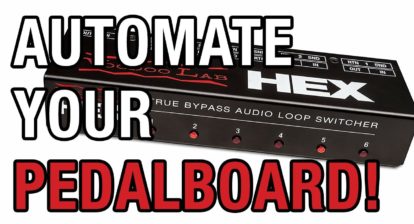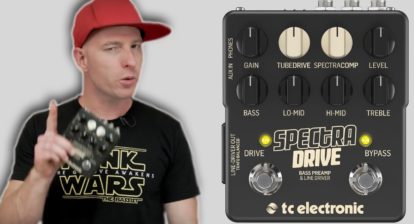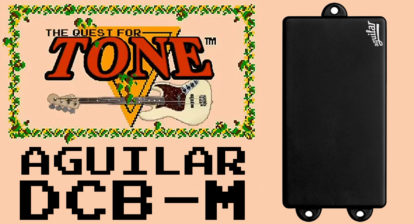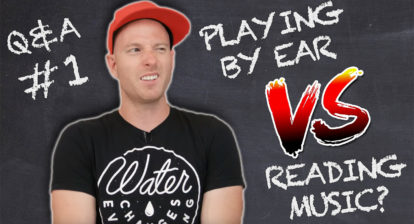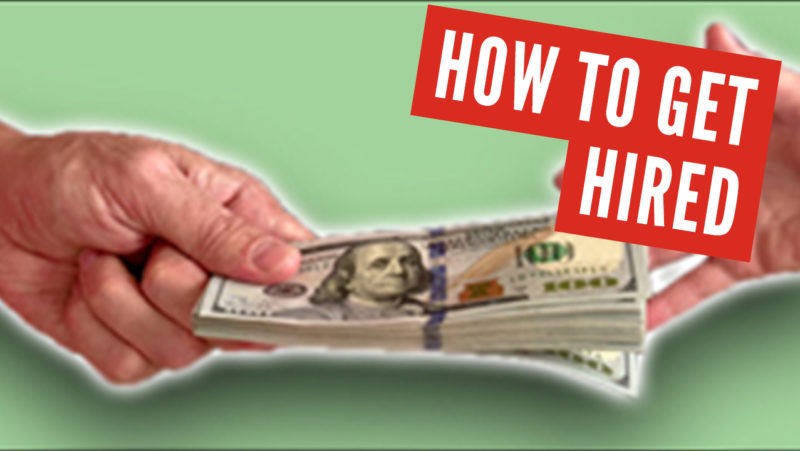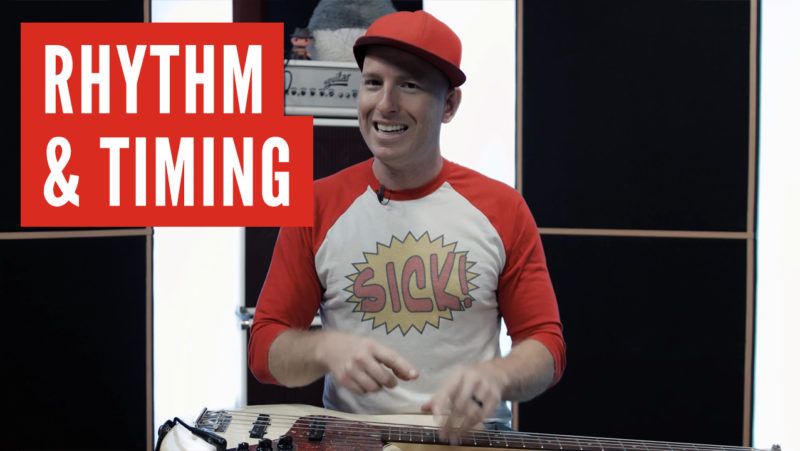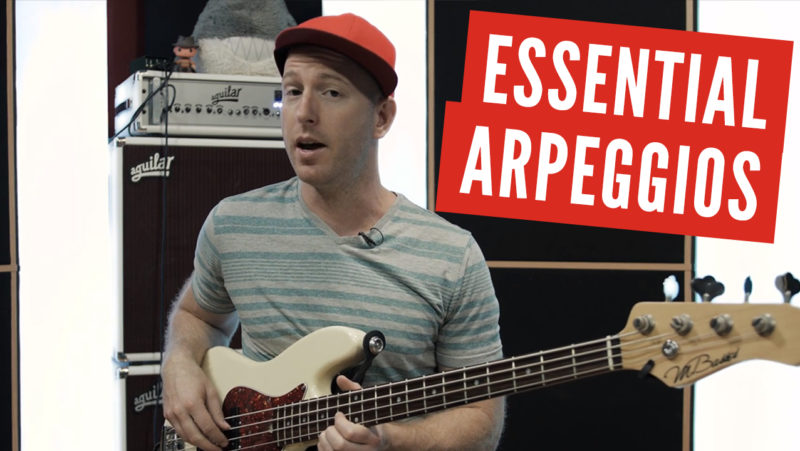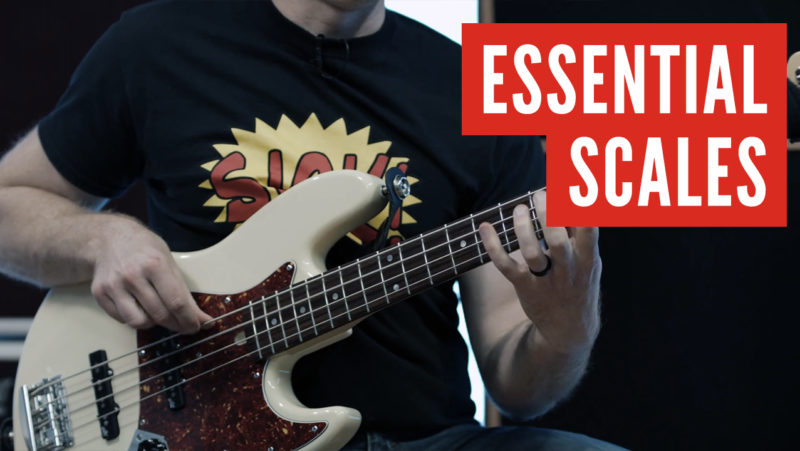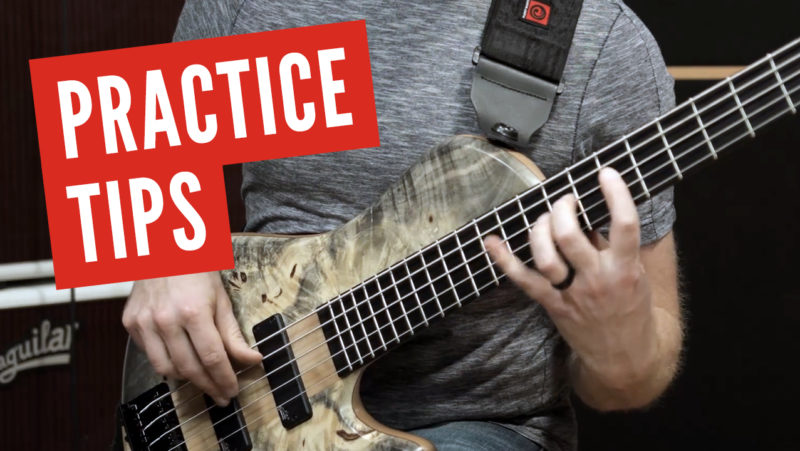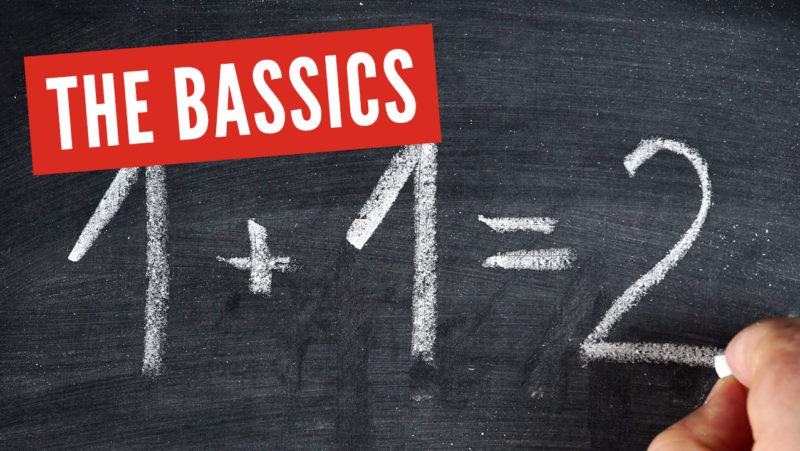I’ve seen this question come up a few times in some different Facebook Pages like Bass Players United, and it usually goes something like this: What kinds of effects pedals do I need? I love this question because there are so many different answers for it that it’s not even funny. First of all, suffice to say that you don’t need any effects pedals at all. In fact, many times that I am performing, recording or just practicing music I use zero effects pedals in my chain. So what do you really need?
1) A bass guitar
2) A 1/4″ cable
3) Two hands (but even then, guys like Bill Clements prove this one wrong)
That’s all you really need. However, it doesn’t hurt to have some extras. In fact, it can be really cool to manipulate your sound in a way that would be otherwise impossible. So, rather than asking the question of what pedals you need, I pose a different one: What kinds of effects pedals can I add to expand my sound pallet? Ah. Much better.
Because that’s really what you’re doing; you’re taking your sound to a new place that you couldn’t before; not that there was anything wrong with your sound to begin with. It’s just different. And unique. And it’ll do something to the music that you couldn’t do to it before. It could be as subtle of a change as moving your hand placement or pickup blend, or an eq change, or a full-on transformation to the sound of an 80′ robot attacking Manhattan. Why not?
So here’s a few good places to start if you’re interested in branching into such territory. I’d say that a good overdrive pedal should be one of the first. This pedal doesn’t quite “distort” your sound, just runs it hotter (not louder, though it could serve that purpose as well). It’ll break up a little bit and will cause you to lose some low end, so make sure it has an EQ knob on it as well. This kind of pedal also works great if you’re in a band with only one guitar player, because it’ll give the subtle impression that there’s a 2nd guitar in the mix when you play live (which is an awesome trick when he begins to take a solo and it’s just YOU holding down the fort).
An aggressive distortion pedal will also be nice if you want to take your overdrive stage to the next level, and running the aforementioned overdrive pedal into a distortion pedal will yield even more aggressive results, ultimately giving you four different gain stages with only two pedals: clean, overdriven, distorted and REALLY distorted. Talk about the most bang for your buck 🙂
An envelope filter of some kind can work wonders for funk music and the like, creating that “wicky wicky” sound. It’s also super useful for EDM-type productions where you want it to sound like you just submerged the listener’s head under water. Typically an automatic envelope filter with an LFO will do the trick, but attaching an expression pedal will make it double as a wah-wah pedal, too (more bang for your buck – two sounds with one pedal. Seeing a pattern here?).
Chorus is a neat effect, especially if you’re going for the signature Jaco sound. Reverb and delay can help create soundscapes and abstract noise, as well as help your bass to sing if you’re playing solo. Compression is an obvious effect (and perhaps the most common, besides distortion) for bass players as it tightens up your sound for clarity and fullness. Obviously, the amount of compression used is genre-specific, but almost any bass tone can use a touch of it. Loop pedals are also great for jamming by yourself or practicing. They can be tricky to use with a live band, however.
There’s other pedals like harmonizers, ring modulators, pitch benders and flangers/phasers, but I feel these effects are much more dependent on the source material than the other pedals I mentioned eariler. Check out Muse’s Hysteria to see what I’m talking about. Both the song and it’s bass line are composed around Chris Wolstenholme’s use of effects for this song; not easily applicable to just any song or ensemble (as compression or overdrive/distortion could be).
So there you have it. Pedals aplenty. Need em? Not necessarily, unless your band’s style of music calls for it regularly (like Muse). Cool? Fun? Unique? Extraordinary? Most definitely. If you don’t feel like you have enough tools at your disposal to create the sounds that you want, then venture out and check out some pedals! And remember, they don’t necessarily have to be “bass pedals” either; you can achieve equally amazing results with guitar pedals, too. Just make sure you don’t sacrifice your low end!

